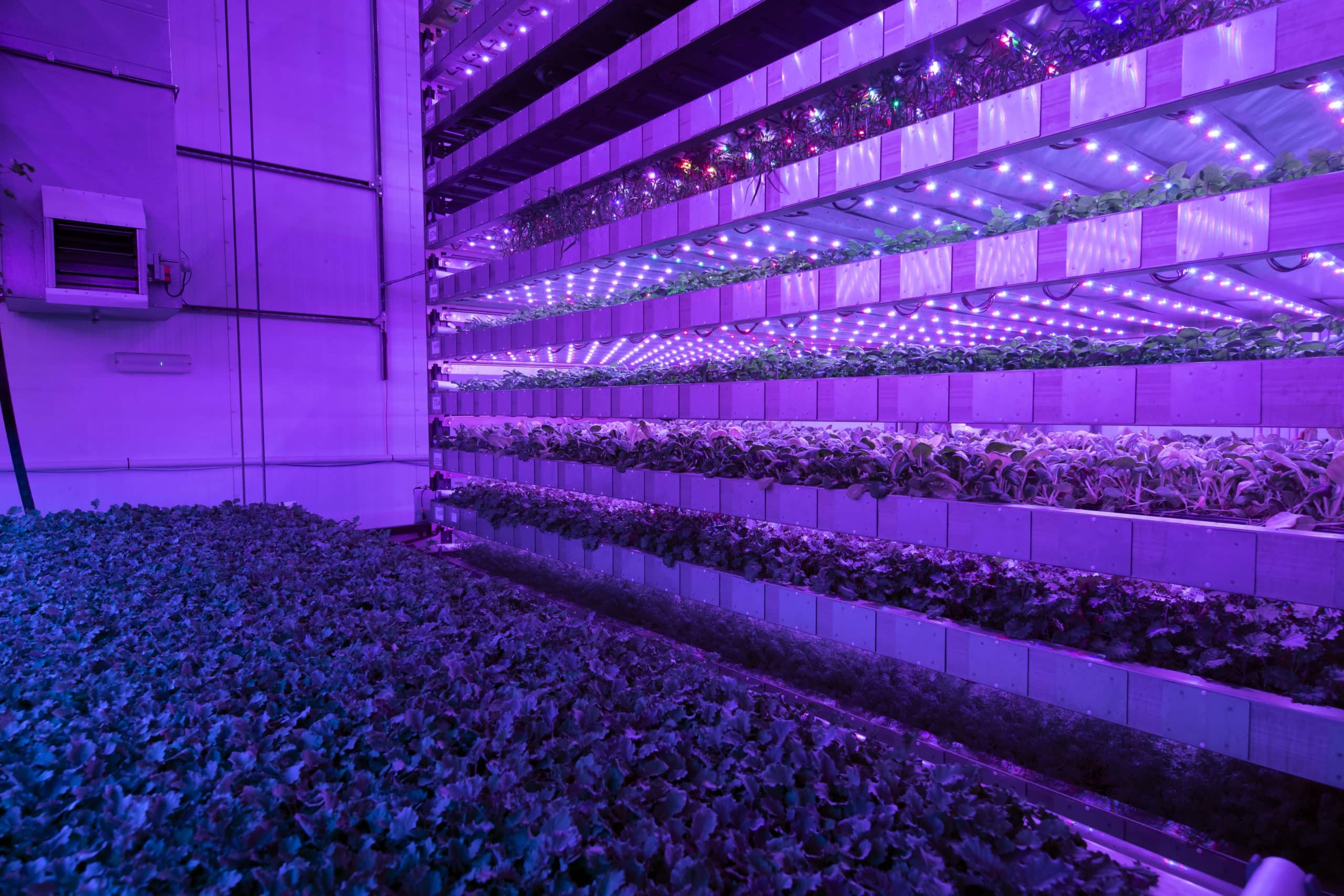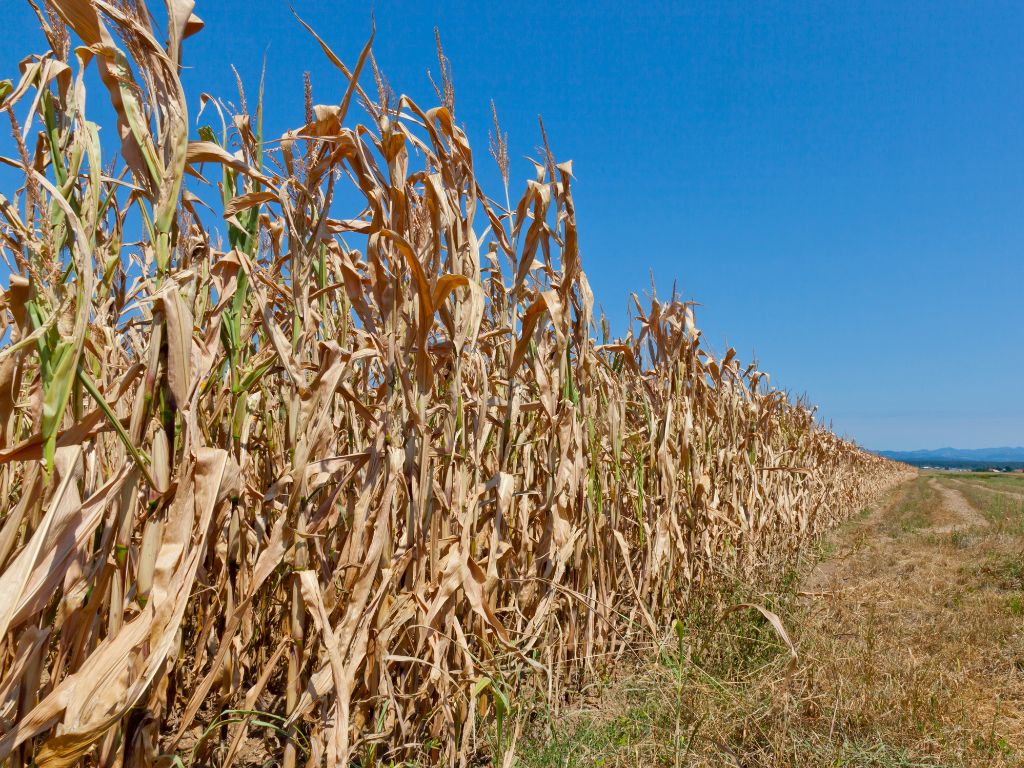Europe is experiencing one of its worst droughts in more than 500 years. From the UK to Italy, record-breaking heatwaves are damaging crops and raising concerns for food security, already compromised by the wheat shortage sparked by the war in Ukraine. Since traditional farming has proved vulnerable to climate change, is there a better solution to protect our food supplies as the planet keeps warming up?
—
In a few months’ time, we will reach the first anniversary of world leaders, scientists, and climate activists gathering in Glasgow for COP26 to action a plan towards tackling climate change. After almost two weeks and endless pledges, the world moved on with a wave of new hope we set out on a course of action that would help curb the drastic impact we are having on our environment.
Return to the present day and the United Kingdom is cooling off from record-breaking heatwaves that saw the mercury surpass 40C. We are staring down the barrel of ongoing drought throughout August. Put simply, British farmers are in a very difficult position.
As it stands, over 45% of Europe and the UK is currently under drought warning conditions. Photos have emerged of the Loire riverbed in France, running dry for the first time in recorded history. If the rising cost of living and the inflation of food prices are to be curbed, alternative means of food production must be contemplated.
The Impacts of Heatwaves and Droughts
Extreme heat impacts plants in a multitude of ways but the most obvious and drastic is the necessity for increased water usage. Agriculture already accounts for 70% of all freshwater used on the planet: if food supplies are to meet the levels that our current and ever-growing population demands, innovation is required to ensure water usage is minimised and output is maximised.
A lot of the current issues facing our food insecurity problem is the dependence on certain grains, fruit, and vegetables from imported sources. This goes for a plethora of countries, not just the UK, and it is a challenge that has been highlighted by the shortage of grain since Russia’s invasion of Ukraine. The conflict and subsequent halt of grain exportation have highlighted the immense reliance on importing our food and the dangers that this brings with it.
You might also like: Wheat Shortage Is Sparking a Global Food Crisis
Combined with the increasing likelihood of extreme weather in the coming years, we sadly can no longer rely wholly on traditional farming as our only means of crop production. So, what does the future of agriculture actually look like?
Vertical Farming
The development of advanced agricultural technology has helped improve both sustainability and reliability within a sector that is continually at risk of unpredictable weather and yields.
Now, with the symbiotic relationship growing between technology and agriculture, a boom in the vertical farming industry is proving to be one of the most resourceful ways that agriculture can diversify.
Vertical farming is by no means a replacement for traditional farming. However, when used in tandem with traditional farming, it can provide the industry with some relief from the impact of climate change. Providing farmers with a precision-controlled environment, capable of being deployed both in rural and urban settings, vertical farms can drastically cut down the time needed to transport food from point of production, to the store or to the table.

Vertical farming towers are popping up all over the world in the EU, US and Asia providing cities with urban farms to grow all of their leafy greens and more.
Moreover, vertical farming’s water usage is far lower than that of traditional agriculture. Crops are irrigated by a closed-loop irrigation system which means the only water used is in the plants grown, allowing around 95% of water to be recycled. The systems also use clean-room technology, meaning no pesticides or fungicides are required therefore crops do not need to be washed prior to consumption. This, combined with enhanced scheduling capabilities helps maximise produce shelf-life.
There are multiple ways that vertical farms can be utilised going forward for the betterment of the industry, whether that is providing a nursery for crops that then go on to be planted in the field, or providing cities that lack arable land with a path towards self-sustenance. This relieves pressure from traditional farms which can otherwise provide for their locality. By taking advantage of this and employing a hybrid model that embraces technology alongside more traditional growing techniques, farms could potentially look to add an additional crop cycle throughout the year.
You might also like: Top 7 Vertical Farming Companies in 2022
The Future of Agriculture
As we have seen over recent weeks and months, the rising threat of climate change means our agriculture sector must adapt to be stronger than ever. With an ever-growing population and a greater pattern of unpredictable seasons, vertical farming and agri-tech are quickly becoming necessary players in ensuring that everyone has high-quality, nutritious food on their plate.
As we near this year’s COP27 in Egypt and the discussion of food insecurity grows more important by the day, it is crucial that both global leaders and the agriculture industry embrace innovation to stabilise the planet’s food production requirements. We must future-proof global food supply from the inconvenient truth of climate change.
This article was written by Andrew Lloyd, COO of agritech business Intelligent Growth Solutions
You might also like: 7 Green Tech Examples Helping Mitigate Climate Change

















